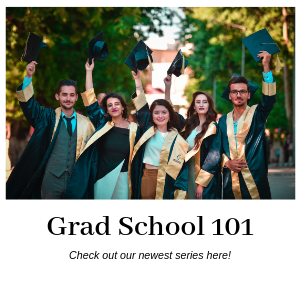US Supreme Court Rules University Can Use Race in Admissions
 |
The deeply divided US Supreme Court on Thursday issued its decision in the high-profile Fisher v. University of Texas case, a challenge to the University of Texas’s use of race as part of a broad set of admissions criteria. Contrary to widespread expectations, the Supreme Court upheld the affirmative action case in a 4-3 vote that allows the University of Texas to use race and ethnicity as a factor in admission applications.
The suit was brought by Abigail Fisher, a white woman who sued the University of Texas in 2013 for taking race into consideration during college admissions. Fisher was not in the top 10 percent of her high school, but argued that her race was a major factor in her not receiving admission to her state's flagship university in 2008. Fisher ultimately graduated in finance from Louisiana State University but had continued to press her case with the aid of a conservative legal group called the Project on Fair Representation.
When the case was first argued, many felt that the days of relying upon race in university admissions were numbered. There were concerns that if the Court ruled in favor of Fisher, affirmative action at public universities would end in the US. Some academics argued that the result of such a ruling would decrease the number of black and Hispanic students admitted to American universities, while increasing the proportion of white and Asian students that typically dominate the top 10 percent of high schools.
However, the Supreme Court's decision, by a 4-to-3 vote, is unexpected as it allows US colleges to continue to use race to build diverse classrooms.
Justice Anthony Kennedy and the court's more liberal justices said Texas' unique method of singling out some minority students for admission to its flagship campus in Austin was constitutional.
“A university is in large part defined by those intangible ‘qualities which are incapable of objective measurement but which make for greatness,'” Justice Kennedy wrote, quoting from a landmark desegregation case. "Considerable deference is owed to a university in defining those intangible characteristics, like student body diversity, that are central to its identity and educational mission.”
“But still,” Justice Kennedy added, “it remains an enduring challenge to our nation’s education system to reconcile the pursuit of diversity with the constitutional promise of equal treatment and dignity.”
Justice Samuel Alito slammed the decision as "affirmative action gone wild" in a 51-page dissent that dwarfed the court's 20-page opinion. He said it allows the university to seek out African-American students with privileged backgrounds over low-income white and Asian students. Chief Justice John Roberts and Justice Clarence Thomas joined his dissent.
Speaking from the White House after the ruling, President Obama applauded the ruling.
"We are not a country that guarantees equal outcomes, but we do strive to provide an equal shot to everyone," Obama said. "That's what the Supreme Court upheld today."
The Asian American Legal Defense and Education Fund (AALDEF), founded in 1974 as a national organization to promote the civil rights of Asian Americans, hailed the Supreme Court decision.
"We are gratified the Supreme Court has recognized the ongoing relevance of race as one of several factors in the college admissions process and the importance of a highly-qualified and diverse student body," said Margaret Fung, executive director of AALDEF.
The University of Texas at Austin hosts a large population of international students and the engineering school in particular is a big draw with students from the Indian Institute of Technology and top engineering schools.
"Austin is pretty cosmopolitan within the US and a very thriving technology start-up town. The university retains a largely Texas-centric student body, but there's still a lot of Indian students," said Gaurav Mathur, a senior at the Cockrell School of Engineering at the University of Texas at Austin.
Uttara Choudhury is Editor, North America for TV 18’s Firstpost news site. In 1997, she went on the British Chevening Scholarship to study Journalism in the University of Westminster, in London.














